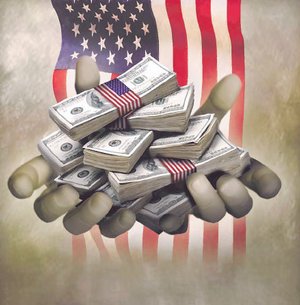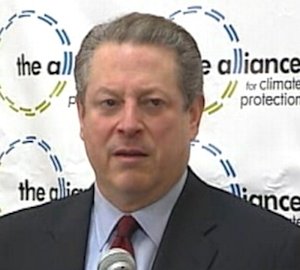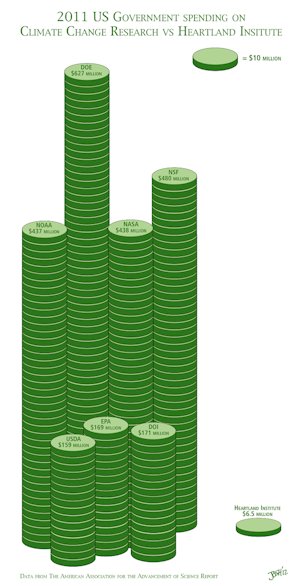Rethinking AGW, Part 6: Publication Bias
 | | Perhaps, someday, the file drawer effect will be a thing of the past |
Publication bias is a potentially vexing problem for modern science that is rarely ever talked about, outside of scientific circles, due to the bad PR. Put simply, the problem is that experimental results that demonstrate something new, sensational, or unusual are more likely to be published in peer-reviewed journals than results that are replicative, supporting of the null hypothesis, or commonplace. It happens in all scientific disciplines, and most scientists are trained to be vigilant against it. For example, a study that shows a slight but statistically significant benefit to taking a certain vitamin supplement is far more likely to get published (and publicized) than a study that shows no benefit whatsoever, but a careful doctor knows to take the study with a huge grain of salt before recommending that vitamin supplement to his or her patients. If a hundred experiments are done and only five show a positive result, those five might get published while the ninety-five others are left in the file drawer, because there isn't a lot of money to be made in boring, predictable results.
Where AGW (anthropogenic global warming) is concerned, publication bias might have resulted in an over-sensationalized sense within the scientific literature that AGW is not only real but extremely important and alarming. A paper that highlights doomsday computer models is more likely to be published than a paper that concludes that AGW isn't a very big deal. However, if this were going on strictly behind the scenes of climate science and weren't such a politically-charged issue, the scientific community would be able to compensate for the bias and correct it, as they do in most other modalities.
 | | I'm sure the government wouldn't attach strings to their grant dollars |
The problem with AGW bias, then, is a largely political one. When the United States government alone is spending "over $2,000,000,000 in resources to address the reality of global warming climate change and its effect on Earth's environments" in a single year (House Report 111-149), and many European governments are spending proportionally even more, not to mention all the taxpayer dollars being funneled into "green energy," there are enormous incentives for researchers to chase the money and produce results that are dramatic enough to be a political talking point. Scientists don't want to talk about it in public, because they never want to talk about it. Even the emphatically advocative Skeptical Science website, which does a good job debunking most AGW denialist arguments, has nothing at all to say on the subject of "publication bias."
Of course, to be fair, this political and financial bias doesn't go in just one direction. There is money to be found in denial. Alarmists are quick to point to ExxonMobil, Koch Industries, and the Heartland Institute as the three biggest contributers to the "Global Warming Denial Machine." These businesses have set up websites filled with skepticism and questionable, cherry-picked science and have used their financial influence to block cap and trade legislation and raise money for scientists who are in the vocal minority of climate change research. There have been attempts by these groups to kick-start journals that only publish data that goes against the alarmist AGW narrative.
 | | When Charles Koch spends money, it's evil, but when Al Gore does it, it's altruism |
Using a very liberal accounting (for example, counting all money contributed to the Cato Institute and other conservative think tanks), Greenpeace has leveled their best case against ExxonMobil and Koch Industries, and is outraged that they have spent, in the span of eleven years, a total of $72.5 million. As for the Heartland Institute, there was a recent scandal concerning the roughly $6.5 million it has spent since its inception in the mid-80s on funding AGW skepticism and denial. At worst, these three big corporate entities--the three worst offenders, according to the alarmists--have spent upwards of $100,000,000 in the last decade or so. I have no doubt that a good portion of this money has been abused in the name of politics and bad science, but it is a far cry from the $2,000,000,000 the U.S. government spends every single year in support of "the reality of global warming climate change and its effect on Earth's environments," which doesn't include all the money being spent by liberal think tanks, Hollywood celebrities, and green energy companies. If the alarmists want to play a game of "follow the money," they will surely lose.
Incidentally, I would be remiss if I didn't mention the BEST study I talked about a few months ago, since it was funded in large part by the Charles G. Koch Foundation. Charles G. Koch is not only the CEO of Koch Industries, but he has also donated a significant amount of money to Heartland. If the alarmists want to say that every dollar being spent by the Koch brothers in the name of AGW research is tainted, they have to throw out the results of the BEST study, which are the most convincing results pointing to a recent and dramatic increase in global surface temperatures. Similarly, I would be willing to believe that at least a small portion of the $2 billion annually spent by the U.S. government has found its way into the hands of AGW denialists or has funded research that supports the null hypothesis, though I doubt that portion is very large.
 | | Just a little perspective |
All this really does is highlight the dangers of mixing politics with science. No matter which side of the debate you favor, you have to acknowledge that there are rabid ideologues behind the scenes spending as much money as they can to subvert the scientific process. Unfortunately, you can't do good scientific research without money, so the truth is lost somewhere in the purse strings. When a debate becomes as heated and partisan as the AGW debate, reason is hopelessly drowned out in a sea of political posturing, fundraising dinners, and grant applications.
It is also important to note that there are other reasons for publication bias in the AGW debate. For example, vocal climate skeptics tend to be older, because tenure protects them from political backlash and they tend to have more tempered expectations when it comes to the benefits of computer modeling. There could also be editorial bias, as the editors of scientific journals--the guys who choose which papers to publish--are not immune to political influences both subtle and gross, as well as the eagerness to pad one's resumé by authoring or co-authoring a slew of popularly cited sensationalistic papers.
In the end, I find it very difficult to believe that a scientifically skeptical person would completely dismiss the effects of publication bias and the file drawer effect when it comes to AGW. There are very real consequences to the politics that have absolutely nothing to do with a scientific reality. The most alarmist position may indeed be correct, but it is impossible to know because the science has become hopelessly tainted by the financial process. I want to be a reasonable skeptic, but I find myself unable to believe any paper--no matter how many names, letters, and universities are on the byline--that takes a strong position on AGW either way. I simply cannot write off the billions of dollars being thrown around or the unfortunate tendency for even the most careful people to be swept up by political considerations. The longer this exercize of mine goes on, the less certain I am that anybody in this debate can honestly claim to know the truth.
-e. magill 5/15/2012
|
|